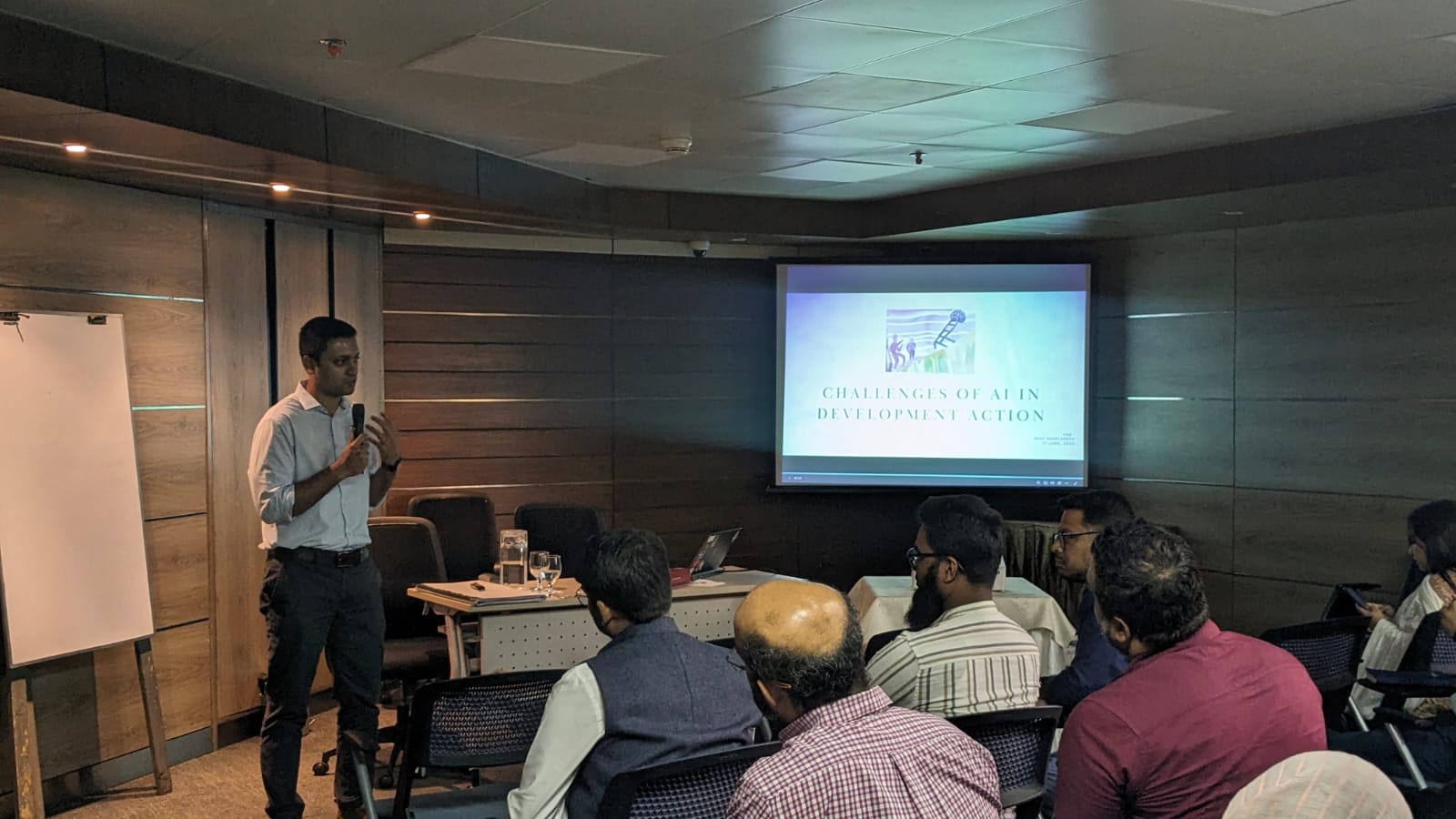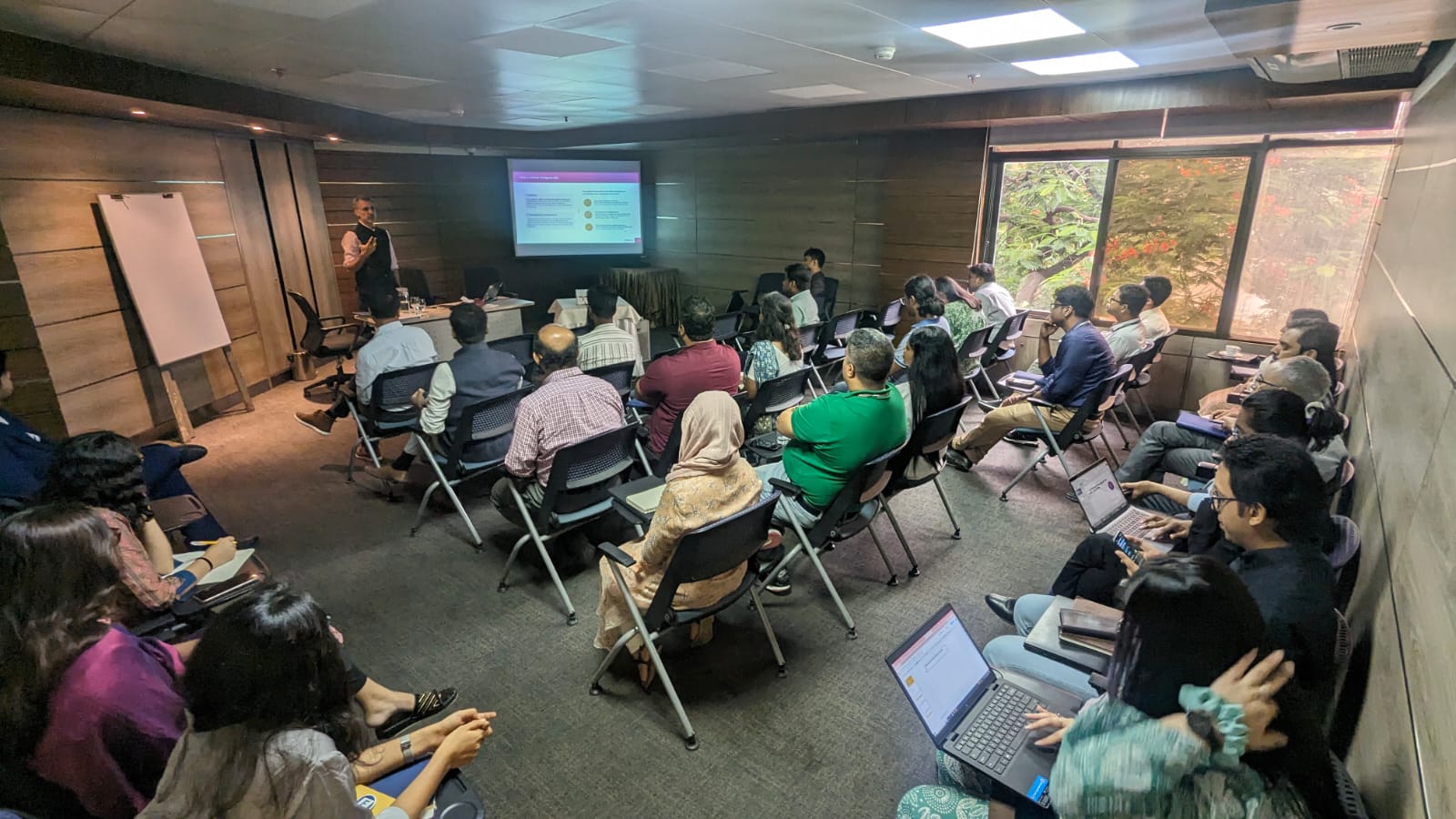‘How many of you use Artificial Intelligence (AI) on a daily basis?’ Half of the room raised their hands in response to a question by Kunal Walia, the day’s opening speaker from Dalberg, the business consultancy that provides an innovative mix of services for a sustainable planet.
Despite the quick adaptation of the technology, the relevance of AI in the high-touch-based development and humanitarian sector is significant. So on 13 June 2024, BRAC Social Innovation Lab arranged an Innovation Dialogue on the ‘Opportunities and Challenges of AI in Development Action’ to address the changing landscape. The dialogue scoped the possibilities and challenges of the development sector in response to AI and how BRAC can come around the use cases for the betterment of the community. As an industry expert, Kunal focused on the AI investment portfolios as well as Generative AI (Generative AI refers to deep-learning models that can take raw data and “learn” to generate new outputs when prompted) in development practices of the major development organisations. He shared insights on how 56% of the investments made have been towards building healthcare, while simultaneously, a large investment has been made to understand the risks and ethics of AI. Mentioning use cases, Kunal emphasised on the importance of localising the AI use cases instead of replicating those of the West.Taking the floor, Vismit Bansal, the Associate Partner for Dalberg, dived deep into the three levels of AI use cases for organisations, namely internal operations, the international development community, and the AI ecosystem. CGAP’s initiative to increase financial inclusion among women, addressing barriers of the healthcare ecosystem and the use cases of EkStep and People+ai highlighted AI on the three aforementioned levels.
The second part of the dialogue was presented by Kuldeep Bandhu Aryal, Co-Lead of the Social Innovation Lab, focusing on the challenges of AI localisation in development action. Addressing the paradigm shift, he assessed the viability of AI in the high touch-low tech environment of development practices. As AI infrastructure uses already built up mobile and internet networks, AI has brought revolutionary changes in a short span of time. This has given us less time to prepare for the impending ethical challenges of the technology. To address the issue, he presented the D&D moral axis for AI use cases. Addressing AI’s sensible and lawful usage in vulnerable sectors like surveillance and migration, he proposed a decision tree integrating AI into the solution design process of development action.

The last part of the session called for an open discussion, moderated by Rakib Avi, Lead of Social Innovation Lab. The participants of the event shared their experiences of using AI in the BRAC ecosystem. Reinforcing the purpose of the workshop, colleagues from different BRAC programmes engaged in discussions on the challenges and opportunities that come with integrating AI in the workplace. Some interesting use cases were shared from the work arena of Urban Development Programme (UDP) on detecting low income communities using AI and facilitating emergency communications for households using AI chatbots. The discussion brought forward an example of using an AI tracking system in Barcelona for water resource management, something Bangladesh could perhaps look into and localise a similar system for pipe management for improved urbanisation However, with digitisation comes the issue of the digital divide. Such a widespread use of AI without upskilling those using it can increase the divide even more rapidly.
Along with defining the ethical considerations while using AI in BRAC, the need for upskilling was heavily focused upon. It was also suggested that BRAC should identify the gap in skill development and work to mitigate the digital divide. The discussion ended on the note that from an organisational point of view, focusing more on the values of community development will be the best feat to follow to ensure the effective use of AI.
